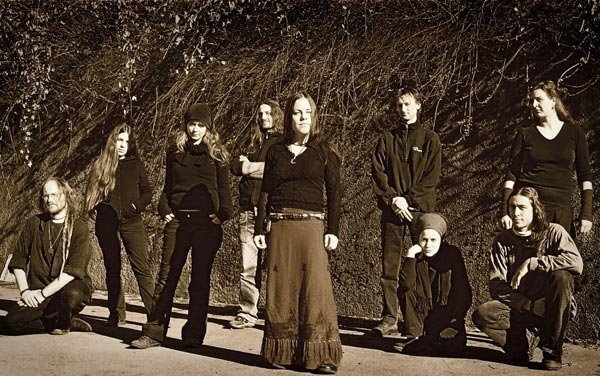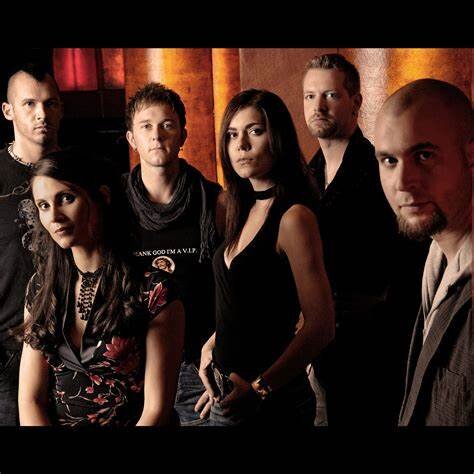The Pagan Music List #8: Branâ Keternâ, Schandmaul, Corvus Corax, Stille Volk
This was first posted at Another World, our exclusive supporters’ journal. Get early access to essays and audio, as well as free access to courses, downloads, and discounts by becoming a member.
The PAGAN MUSIC LIST is an attempt to create a comprehensive list of Pagan, Heathen, Esoteric, Animist, and related music that we listen to and love. We include embedded YouTube, Soundcloud, or Bandcamp links when possible for each artist.
Previous collections in this series have been archived here, and new collections of reviews will be posted monthly (supporters get early access to new collections—find out more here).
We also provide a constantly updated index of artists that we have reviewed by name and genre.
And if you are a Spotify listener, you can click on the embedded player to listen to the full updated playlist!
Collection 8: Branâ Keternâ, Schandmaul,Corvus Corax, Stille Volk
Branâ Keternâ
Traditional, Folk, Medieval
Recommended Album: Jođ (Physical album sold out, digital available for free)
Artist Website: https://www.brana.ch/
Gods do I love this band.
I remember how I found them. Back about 7 years ago now I started a tiny little medieval punk band called Harrow’s End. We played two open mics and then never played again, but that’s not the point.
While searching online for a song I’d once heard so I could remember part of the melody, I stumbled upon a link that to took me to another link which took me to this band and I was immediately hooked.
The only problem with Branâ Keternâ (“Raven’s mob” in proto-celtic), a band headed up by Eluvietie lead singer Chrigel Glanzmann, is that they only ever produced one short EP and don’t exist any longer. In fact, you cannot buy that album any longer, but you can download it for free from their website.
Branâ Keternâ describes itself as “troll folk,” and that’s about perfect. Their songs are really weird, ancient melodies but with something chthonic about them. For instance, take their Bärentanz:
My absolute favorite song of theirs is Manachmoil. I have no idea what it’s about or means, but holy fuck is this song a spell to cure any sorrow.
Schandmaul
FOLK, Traditional, punk
Recommended Album: Anderswelt
Artist Website: https://www.schandmaul.de/
One summer afternoon on a mountain-top ampitheatre above the Lorelei on the Rhine, a bit drunk and definitely sunburnt, I stood with about a thousand other black-clad goths and heard my very first “mittelalter” band, Schandmaul.
Schandmaul (“wicked grin”) is really fun. When I saw them they weren’t very big (they were slotted for an afternoon performance) and so hadn’t been significantly changed by their major label contracts. Much more like a pub band and less like more theatric medieval german bands (In Extremo, Corvus Corax), Schandmaul was probably the ideal introduction to medieval rock from my then current preferences (industrial, gothic, punk). This makes sense, because their first few concerts where in small bars (their very first in a bar call Die Hexe—”the Witch”)
As I said, their older music is really the best. Newer albums tend to feel too over-produced and a bit plastic, and ultimately also less pagan-inspired.
Their most popular song was Walpurgisnacht, named after the Germanic Christian continuation of an older pagan ritual (still called “witch-night” in some places) that occurs the night before Beltane
Stetig steil bergauf
Dorthin wo das Feuer lodert
Zieht uns in ihren Bann
Der Gottheit wilde Meute
Nah an der Feuersglut
Verschmelzen wir zu einem Körper
Werden eins mit der Walpurgisnacht!
Constantly steep uphill
To where the fire blazes
It casts a spell over us
The deity's wild pack
Close to the fire's embers
We melt into one body
Become one in the Walpurgisnacht.
My favorite song from them, however, has always been Frei, which starts with a really satisfying drehleier (hurdy-gurdy in German). The lyrics tell of the son of a pagan lord, fleeing from Christian conquerors until captured. He suicides and then becomes free to wander the forests without fear.
Denn ich bin frei
Von den Schatten dieser Welt,
Endlich frei
Von der Fessel, die mich hält
Und ich spür die große Kraft
Wenn der neue Tag erwacht...So I am free
From this world’s shadows
Endlessly free
From fetters that chained me
And I feel a great power
Waking into a new day.
Corvus Corax
Medieval, Rock
Recommended Album: Sverker
Artist Website: https://www.corvuscorax.de/
When the Communist state of East Germany fell, it unleashed a feral band of rarely-dressed barbarians upon the rest of the world, wielding bagpipes adorned with raven skulls against drab forces of the bourgeois West.
That band is Corvus Corax (the Latin species name for Raven), and good gods are they kind of terrifying-looking. As the first band to really try making rock or metal music with reconstructed medieval instruments, looking a little extra scary probably helped. Thing is, they are also known for being deeply knowledgeable musicians whose research into medieval musical forms and instruments now inform scholars and instrument makers.
Their absolute best song is Havfrue, an old Danish song in which a king marries a mermaid (a havfrue) who wreaks havoc when he later rejects her. Especially good are the versions performed with drum troupe Wadokyo, as in the following video version.
Also from that same album is the song Sverker. The lyrics are simple, part of an old poem about one of the most famous assassinations of a Scandinavian king.
Stille Volk
Folk, Punk
Recommended Album: Nueit de Sabbat
Artist Website: https://stillevolk.bandcamp.com/
Despite their German name (“The quiet people,” another name for Dwarves), Stille Volk hails from the Pyrenees and sings in Catalan, Occitan, and French.
Their music is a lot of fun, composed mostly of traditional instruments and joy-filled vocals even in less joyful songs. And each of their albums are great, though one of their earliest (Ex-Uvie) experiments a little too much with metal and sounds a bit schizophrenic.
Their song La Danse de la Corne (Horn Dance) is my favorite of theirs, and like many of their songs is rather sexual.
Torches et lanternes, porteuses d'ombres
La flamme brûle dans l'aire de pénombre
Bransles et danses dans l'orgie finale
Rituel sacré, agapes virginales.
Le vin déroule son tapis d'effluves
Cornes et cornes s'entremêlent dans l'étuve
Les ménestrels cornus entonnent le cri
Dans une extase de fièvre telluriqueTorches and lanterns, bearers of shadows
The flame burns in the twilight area
Jerks and dances in the final orgy
Sacred ritual, virginal feasts.
The wine unrolls its carpet of scents
Horns and horns intermingle in the heat
The horned minstrels sing the cry
In a telluric fever ecstasy
Their song Foret d’outre tombe (Forest beyond the grave) is particularly notable for its homoerotic lyrics, mixing forest gods, warrior myths, and phallic sexual ecstasy:
Cavaliers des saisons antiques
Chasseurs géants, armes mythiques
Me coiffent de leurs rituels magiques
Entonnant la victoire tellurique.
L'enclume brisée, tout se prosterne,
Je suis ton Damoclès, ancêtre supplicié.
Je hurle l'ancien hymne, à toi Herne,
Songe d'enfer, géhenne de fourrés.Horsemen of the Ancient Seasons
Giant hunters, mythical weapons
Groom me in their magic rituals
Singing the telluric victory.
The broken anvil, everything falls down,
I am your Damocles, tortured ancestor.
I scream the old hymn to you Herne
That song of the underworld in this thick forest.




